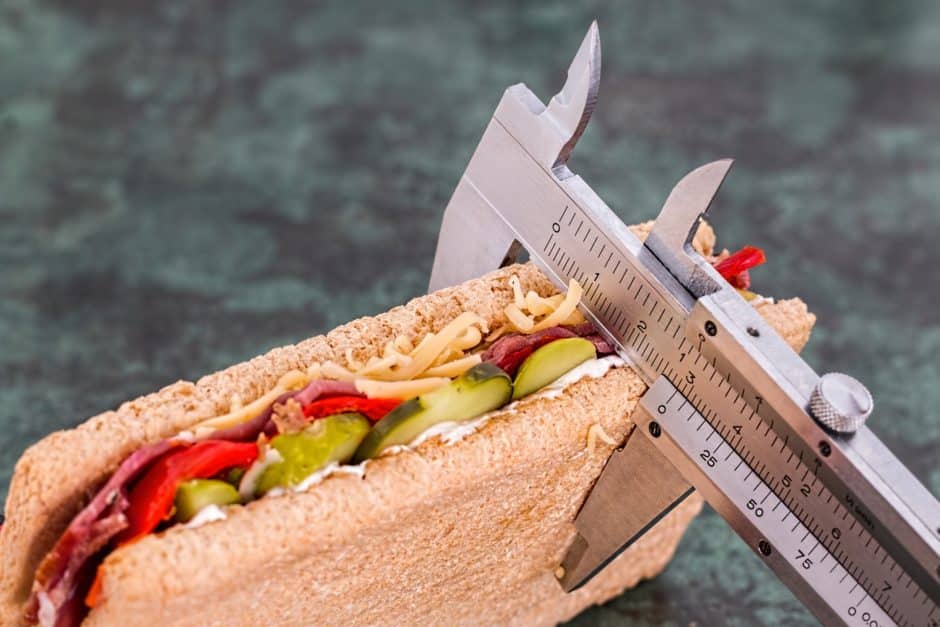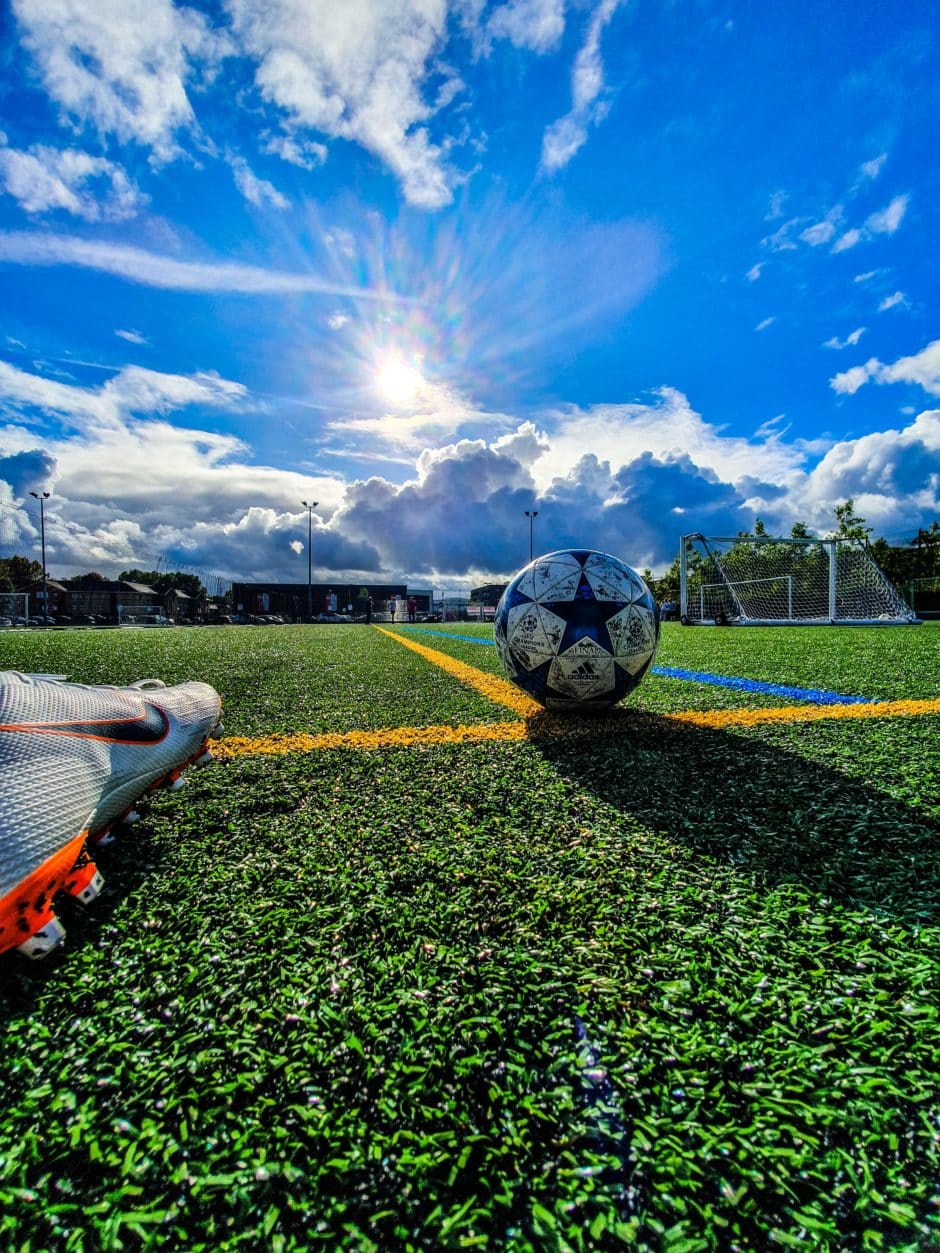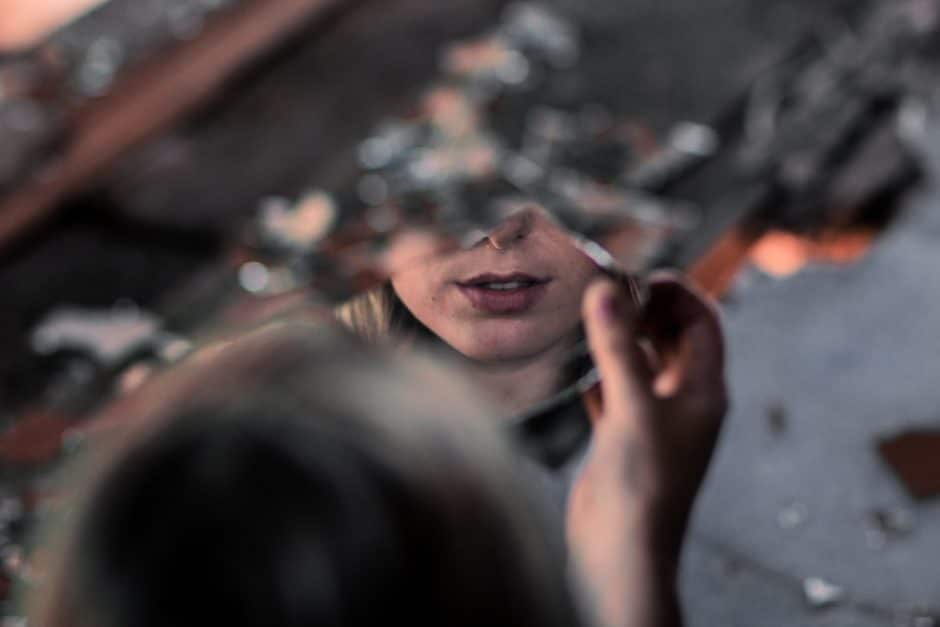By Sarah Losner
On a Saturday morning the local Whole Foods is stocked with shipments of fresh produce. A myriad of canned and boxed foods line the shelves. Delightful smelling breads from the bakery section, and the aromas Indian cuisine from the open buffet make their way to the noses of shoppers, ready to stock their panties and refrigerators. The store is bursting with color and life.
Without a shopping cart or basket, I scan the aisles meticulously. I’m not looking for anything in particular, rather, you could say that I’m looking at everything. I run my hand on the outside of an avocado, feeling the grooves along the peel with my fingertips. I put a lime beneath my nose, smelling the rind and imagining what scents the insides will yield. A bag of chips makes a crinkling sound as I hold it in my hands. The bag is light and airy. In the candy aisle, I pick up bars of chocolate and turn them to the back, examining the label in the same way that a researcher analyzes a science experiment. Taking notes, paying attention to detail, absorbing the information. I decide to buy a chocolate bar.
Upon leaving the store and returning to my car in the parking lot, I remove the chocolate bar from the paper grocery bag. I turn to the nutrition label on the back of the packaging. There are 370 calories in a serving, and two servings per bar. Since there are twenty squares of chocolate in one bar, a single square must contain 37 calories. I pride myself on being good at math.
I carefully open the package and separate one chocolate square from the remaining 19. The chocolate sits in the palm of my hand for many minutes. The more I stare at it, the more it looks like God – something that exists beyond my comprehension. Metaphysical. I bring the chocolate square to my mouth and stop. I’m not ready for this. I put it in a ziplock bag that I brought with me from home. I write the number 37 in a note on my phone so that I don’t forget, and throw the ziplock bag into the back seat of my car. Then, I return my attention back to the remaining chocolate bar.
With the wrapper on, I put the bar in my mouth and chew, trying to imagine how my tastebuds would perceive the sweet taste, and how my tongue would embrace the smooth texture. I chew a few times before the packaging rips and an inkling of chocolate goes into my mouth. One calorie. Probably. I throw the chewed up chocolate bar out of the car window and begin to cry. It’s almost noon. I have spent my entire morning immersing my senses in food, and yet I am starving.
People with Anorexia love food. We love food so much that we consume it all day. We watch Tasty cooking videos and the Food Network for hours in a single sitting. We look through pictures in cookbooks. We bake and stir and fry and steam and make others eat the food we concoct. We put food in our mouths to absorb the flavors, then spit out the chewed up remains into a nearby garbage can. Food occupies our minds all day long. We can’t get enough of it; we just can’t eat it either.
I suffered from Anorexia during my college years. It stared out with small restrictions. Instead of eating desert every night, I limited myself to once a day. Coke and other sodas were replaced with the zero calorie versions. I stopped using oil when cooking and swore on Pam spray instead. Soon, I stopped going out to dinners with friends and family. I refused to eat while anyone was looking at me. Somewhere along the way I stopped eating meals altogether.
I was in denial about my eating disorder for a long time because of my weight. It’s a common misconception that people who suffer from Anorexia have to be thin. In reality, anyone, of any size could be suffering from the illness. Anorexia is a mindset coupled with restrictive food behaviors. Not everyone’s body will become thin from restriction. Some bodies even gain mass in a restrictive state because hen a person is starving, the body has a tendency to hold onto calories and fat, not knowing when it will next receive nutrients.
Starving people are often obsessed with food. These obsessions don’t take form overnight. They are brought on by a void. Something that is missing in a person’s life that he or she is longing to fill. In some cases, the void is filled in a healthy manner. In others, it’s done dangerously. I think that for me, that void was uncertainty. Back in college, I didn’t now what grades I would get on exams, the kind of firm that I would end up working for, or if I would have enough money to move out on my own. I was insecure in my friendships and didn’t know if I would get invited to parties or events. I realized that one of the only things that I could control and was certain about was what went into my mouth.
When I first started to restrict my food intake, I felt powerful. I made lists of the foods that I would eat on a specific day well in advance. I calculated the calories and fat grams in each food I ate to ensure that I knew the exact nutrients that were going into my body. I knew exactly what my mornings, afternoons, and evenings would look like concerning food and other eating disorder related-behaviors. The uncertainty that I had once felt was removed from my life completely. I couldn’t focus on anything other than food.
When I was sick I also had an extreme fear of losing control. Food seemed to be everywhere. It was always following me. I know now that I was hyperaware of food in the world around me because I was starving. Every aroma smelled more potent. Colors were more vibrant. When people around me were eating food, I could hear every bite. The sound of teeth crunching potato chips sounded like the waves of the ocean. It brought me peace and calmness to see others eating knowing that I had the will power to resist.
The more I controlled my food intake, the more I was sucked into the grasp of my eating disorder. I felt a sense of gratification from using food to fill a void in my life, and that gratification was addictive. I restricted more and more until I was in a state of starvation. My starving brain went to extreme lengths to obtain food. One of the ways I tried to fill my need for food was by visiting markets and grocery stores. Walking the aisles of the grocery store on my leisure time was one of my many ways of consuming food without having to eat it. Food was the number one priority in my life.
One day a friend called and told me that he was “breaking up” with me as a friend. I was never there for him anymore. I seemed distant and distracted. I missed his birthday party a few weeks earlier and didn’t send a card. I was devastated. Later that day I typed the question “Do I have an eating disorder?” into Google. One of the top results was an advertisement for a clinic near where lived. I booked an appointment for later in the week. During that appointment I was diagnosed with Anorexia.
While some are obsess over Instagram, or sex, or material things, others are fixated on basic necessities that are needed to live. Obsessions aren’t inherently bad, but they should be checked when they start interfering with health or relationships. In recovery I have been working hard on creating healthier obsessions for myself. I obsess over the spring with all its vibrant flowers. I obsess over my friend’s birthdays, the color purple, or a great book. I obsess over a really good milkshake. I just don’t let that milkshake obsession permeate into other parts of my life.
Sarah Losner is from Long Island, NY. She loves reading and writing essays and poetry. Her poetry has been published by Indolent Books.
Anti-racist resources, because silence is not an option.
~~~~~~~~~~~~~~~~~~~~
Upcoming events with Jen
~~~~~~~~~~~~~~~~~~~~
THE ALEKSANDER SCHOLARSHIP FUND











